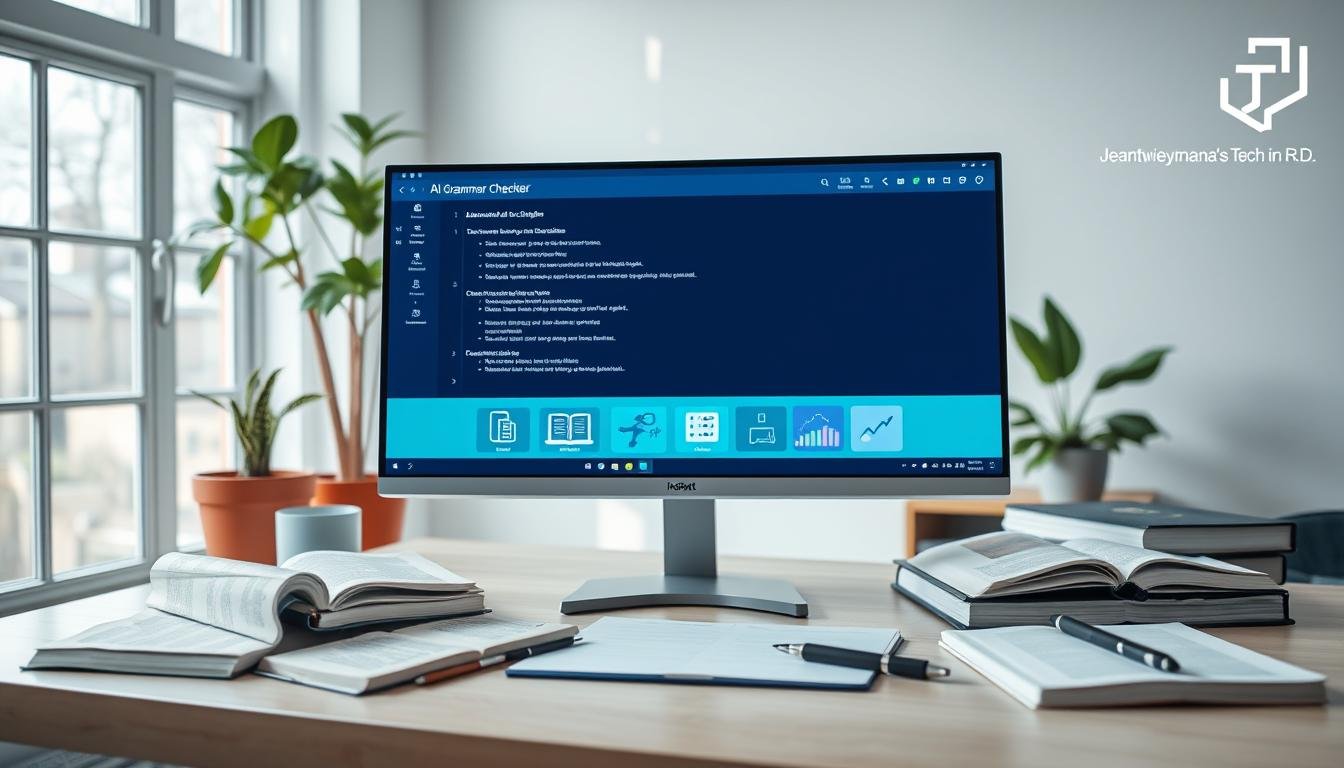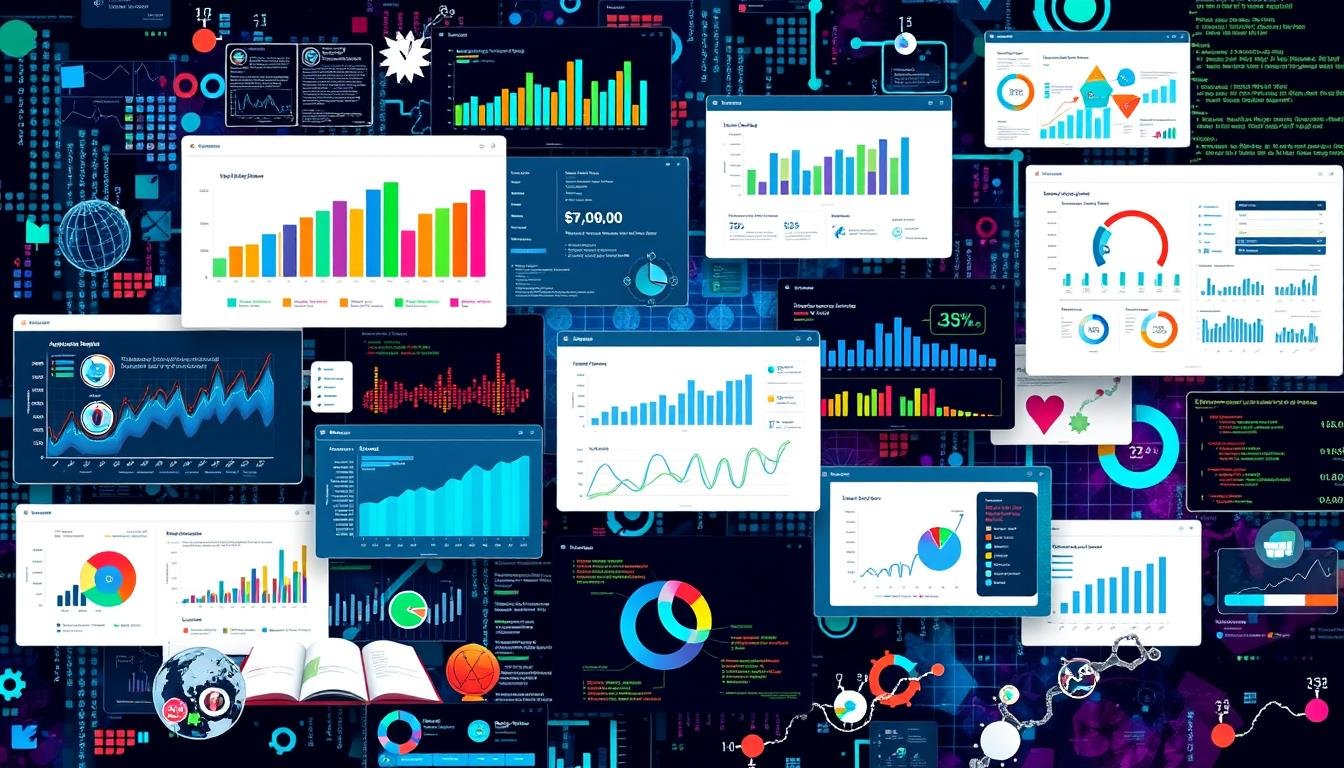What is Reference Management Software? A Beginner’s Guide
November 16, 2024 | by Jean Twizeyimana

Managing references and bibliographies can be hard. But, reference management software makes it easy. It’s a digital tool for organizing and citing sources.
These tools help you collect and format bibliographic info. You can add references from many sources. They also help with automatic citations and styles.
Key Takeaways
- Reference management software helps organize and manage bibliographic information for research purposes.
- These tools offer three main functions: organizing references, creating bibliographies and footnotes, and searching databases.
- Popular reference management software options include EndNote, ProCite, and Reference Manager.
- While not officially supported at MIT, these tools often come with customer support and user communities for troubleshooting.
- Reference management software can streamline the research process and enhance collaboration with others.
Understanding Reference Management Software
Reference management software helps researchers, students, and academics. It organizes sources and makes accurate citations. This makes research papers better and easier to write.
Definition and Purpose
Reference management software is like a big database for your sources. It lets you import and organize references from many places. It saves time and reduces mistakes in citations.
Key Features and Functions
- Bibliographic database: Stores and organizes reference information, including author names, publication details, and abstracts.
- Citation management: Automatically generates citations and bibliographies in various citation styles (e.g., APA, MLA, Chicago).
- PDF management: Allows users to attach and annotate PDF files associated with their references.
- Collaboration tools: Enables users to share references and collaborate on projects with peers.
- Online database integration: Provides access to scholarly databases and search engines for easy reference discovery.
- Duplicate detection: Helps identify and manage duplicate references in the user’s library.
| Software | Cost | Key Features | Compatibility |
|---|---|---|---|
| Zotero | Free (300 MB), Open Source | Web-based, browser extensions, citation styles, collaboration | MS Word, LibreOffice, Google Docs |
| Mendeley | Free (2 GB), commercial (Elsevier) | Web-based, desktop client, citation styles, collaboration | MS Word |
| EndNote | Education discount (starting at $159.99) | Desktop and online versions, citation styles, Google Docs integration | MS Word, OpenOffice, Apple Pages, Google Docs |
Benefits of Using Reference Management Software
Reference management software makes research easier by automating citations. It helps you organize your references well. This saves time and cuts down on mistakes.
It also makes sharing references with others easy. You can work together with your team. The software supports many citation styles, so you don’t have to worry about formatting.
Streamlining Your Research Process
Reference management software is like a library for your research. It lets you store and find your materials easily. It also makes creating citations and bibliographies automatic.
This saves you time and reduces mistakes. You can focus on your research instead of formatting. The software has features like automatic metadata extraction and flexible citation styles.
Enhancing Collaboration with Others
Many tools have features for working together. You can share your library with colleagues or students. This makes literature review support better.
Team members can add to and access shared resources. The software lets you annotate references and discuss ideas. It also tracks changes, making reference library management more efficient.
| Reference Management Software | Free Storage Space | Key Features |
|---|---|---|
| EndNote | 1GB | Paid program, citation management, PDF organization |
| Mendeley | 1GB | Free program, citation management, collaboration tools |
| Zotero | 100MB | Free program, citation management, web-based integration |
| RefWorks | N/A | Paid program, citation management, research collaboration |
| Papers | N/A | Paid program, citation management, PDF organization |
Popular Reference Management Software Options
Finding the right reference management software can be hard. But knowing the top tools and their features helps. Let’s look at some popular ones and what they offer.
Overview of Leading Tools
Top tools include EndNote, Mendeley, Zotero, and Papers. Each helps you organize, cite, and work with others on your research.
- EndNote is great for advanced citation management. It works well with Microsoft Word and many styles.
- Mendeley was started in 2008. It offers free storage up to 2GB, with options to pay for more.
- Zotero started in 2006. It gives you unlimited free storage and works on web, desktop, and mobile.
- Papers was launched in 2007. It has a free 30-day trial and different pricing plans.
Quick Comparison of Features
| Feature | EndNote | Mendeley | Zotero | Papers |
|---|---|---|---|---|
| Free Storage | Available through UCL and GOSH subscriptions | 2GB indefinitely | 0.3GB indefinitely | 30-day trial with unlimited storage |
| Paid Storage Options | N/A | $55/year for 5GB, $165/year for unlimited | $20/year for 2GB, $60/year for 6GB, $120/year for unlimited | $36/year for students, $60/year for non-students |
| Browser Integration | Firefox, Chrome, Safari | Firefox, Chrome, Safari | Firefox, Chrome | Firefox, Chrome |
| Word Integration | Yes | Yes | Yes | Yes |
| Google Docs Integration | No | No | Yes | Yes |
| Cross-Platform Access | No | Yes | Yes | Yes |
Knowing the features and costs of these tools helps you choose the best one. It should fit your research needs and budget.
How Does Reference Management Software Work?
Reference management software is key for researchers, students, and professionals. It helps organize, cite, and manage references. This makes scholarly work easier and more productive.
These tools let you add or import references into a database. Then, you can use them in word processing software for citations and bibliographies.
Basic Operation Steps
The basic steps with reference management software are:
- Adding references manually or importing them from various sources, such as online databases, research articles, or web pages.
- Organizing references into folders, groups, or collections based on research topics, projects, or personal preferences.
- Annotating references with notes, tags, or other metadata to enhance searchability and improve scholarly research productivity.
- Generating citations and bibliographies in multiple citation styles (e.g., APA, MLA, Chicago) with a single click, ensuring consistent and accurate formatting.
Integrating with Other Tools
Reference management software often works with popular word processing apps. This lets users easily add citations and create bibliographies in their documents. Some tools even search databases directly, helping find relevant literature faster.
But, the features of these integrations can differ between citation management tools.
| Reference Management Software | Key Features | Collaboration Tools | Cost |
|---|---|---|---|
| Mendeley | Over 8,000 bibliography styles available, social networking features | Creation, search, and joining of public and private groups | Free with 2GB of web space and 100MB shared library space; storage upgrades available for a fee |
| EndNote | Offers thousands of bibliography styles, customizable options | Exporting references to share with others or invite others to share synced library | Access to EndNote is free via Penn Library site license |
| Zotero | Supports unlimited references in ‘my library’, integration with various activities | Creation and searching of public and private groups | Free with Penn license and additional storage available |
| F1000Workspace | Web-based platform with browser-based extension and Microsoft Word plugin, smart citation suggestions | Provides access to article recommendations in F1000Prime | Works well for Penn users |
Using citation management tools can make research work easier. It helps improve scholarly research productivity. This way, researchers can focus more on the quality of their work.
Importing References
Reference management software makes it easy to add sources to your library. You can enter them manually or import them from databases. This way, your references are accurate and well-organized.
Different Methods to Import References
One good way is to search in a database and then add the results to your manager. This method gives you precise results, especially for detailed searches. Databases like Philosopher’s Index, JSTOR, and Project Muse work well with tools like EndNote, Mendeley, and Zotero.
You can also add references from text files, like RIS or BibTeX. This is great for old data or moving references between tools. Most software has easy import wizards to help you.
Tips for Accurate Data Entry
- Always import references from databases for the best info.
- Double-check author names and publication details when entering manually.
- Use software tools to find and fix duplicate references.
- Let software help with citations and bibliographies to avoid mistakes.
Using reference management software makes adding references easy. You can create bibliographies that look professional without much effort.
Organizing Your References
Keeping your references organized is key, especially for big projects like dissertations. Tools like reference management software help a lot. They make organizing sources easier and faster.
Creating Folders and Groups
Reference management software lets you make folders and groups. You can sort references by topic, project, or type. This makes finding what you need much easier.
Using Tags and Keywords
These tools also let you use tags and keywords. This way, you can quickly find specific information. It’s super helpful for big reference library management systems.
Apps like EndNote, Zotero, and Paperpile have great features for organizing. They help you work more efficiently. This leads to better research papers.
| Reference Management Software | Organizational Features |
|---|---|
| EndNote |
|
| Zotero |
|
| Paperpile |
|
Citing Sources with Reference Management Software
Reference management software makes citing sources easy. It can create in-text citations and bibliographies in many styles. This includes APA, MLA, Chicago, and Harvard, with just a few clicks.
Users can switch between styles easily. This saves time and avoids mistakes in formatting.
Automatic Citation Generation
Reference management software makes citing sources automatic. It uses the info in your library to create citations. This keeps your citations the same style throughout your document.
This saves you from the hard work of manual formatting. It also cuts down on mistakes.
Managing Citation Styles
- The University of York supports three reference management applications: EndNote, Zotero, and Paperpile.
- EndNote has two versions: EndNote desktop and EndNote Web. The latest version is EndNote 21. It has features like tags and Google Docs citations.
- Paperpile is an online reference manager. It’s only available on the Chrome web browser. It stores PDFs in Google Drive for easy access.
- Zotero is a free, open-source reference manager. It can cite in MS Word, LibreOffice, and Google Docs. It’s great for the OSCOLA referencing style.
Using these software programs helps researchers. They can focus on their work. This ensures accurate and consistent citations, boosting their publication’s credibility and avoiding plagiarism.
“Proper citation in scientific publications enhances credibility and avoids plagiarism.”
Collaborating with Peers
Many tools help researchers work together. They let you share notes and references with your team. This is great for group projects or when you have co-authors.
You can make shared libraries and swap notes. The tools vary, so pick one that fits your team’s needs.
Sharing References and Notes
Reference management software lets you share your work with others. This makes team projects easier. It helps everyone use the same sources.
Some tools even let you edit together in real time. This means you can all work on a bibliography or notes at the same time.
Collaborative Tools Available
- EndNote Online lets you sync your library and share with up to 100 people.
- Zotero has groups for sharing citations and attachments.
- Mendeley’s free version lets you create groups of up to 25 for shared reference management.
- RefWorks has unlimited storage, perfect for big projects.
When choosing a tool, think about your team’s needs. Make sure it supports your work together well.
Finding and Managing Duplicate References
When you make a big list of references for your research, you might find the same ones twice. Tools for managing references can help find and fix these doubles. This keeps your list clean and easy to use.
Identifying Duplicates
Tools can spot duplicates by looking at things like title, author, and when it was published. They check each reference to find any that are the same. Then, you can choose to keep one or merge them.
Best Practices for Cleanup
- Check your reference list often to find and merge duplicates.
- Make sure you enter data the same way every time to avoid duplicates.
- Be careful when adding lots of references at once, as it can lead to more duplicates.
- Use your reference tool’s features to find and handle duplicates easily.
| Reference Management Tool | Deduplication Capabilities |
|---|---|
| RefWorks | Deduplication during import is based on Exact Match for Author, Title, and Year, using the same algorithm as Finding Duplicate References. |
| Mendeley | Allows the export of up to 500 references at one time, but does not retain folder structure. |
| Zotero | Works well with the OSCOLA referencing style and is recommended for those looking for a free, open-source reference manager. |
Keep your reference list up to date and use your tool’s features to avoid duplicates. This makes your research paper organization better, more accurate, and without any extra information.
Troubleshooting Common Issues
Reference management software helps a lot, but sometimes it has problems. Many users struggle with managing citations and references right. Over time, the biggest issue in research papers is wrong citations or missing references.
Managing many citations can lead to mistakes. But, the right software can help a lot. It stores and adds citations correctly. Still, it needs careful use because wrong database entries can cause errors.
Strategies for Effective Solutions
To fix common problems with reference management software, try these steps:
- Check the bibliography made by the software for errors. Scholars say to compare it with the real sources.
- Make sure in-text citations match the references in your paper. This makes your paper easier to read.
- Choose the right citation style for each paper type. This keeps your references correct.
- Update your software regularly. Citation styles can change, and so does the software.
Even if your school doesn’t offer much help, there are other ways to find answers. For example, MIT has a mailing group for EndNote users to share tips and solve problems.
By following these tips and staying alert, you can solve common problems with reference management software basics and citation management tools. This way, your research will be well-documented and formatted right.
| Common Issues | Effective Solutions |
|---|---|
| Inaccurate citation information | Verify entries in the generated bibliography, compare with original sources |
| Incorrect merging of in-text citations | Pay close attention to proper citation formatting and presentation |
| Outdated citation style requirements | Select the appropriate citation style for each academic document, keep software updated |
| Limited institutional support | Utilize customer support, user forums, and dedicated mailing lists for troubleshooting |
Future Trends in Reference Management Software
Reference management software is getting better. It will soon work with other tools and use artificial intelligence (AI). These changes will make it easier for researchers to work together and find information.
Evolving Features and Technologies
Soon, reference management software will work with many tools and cloud services. It will have better ways to share and update information. This will help researchers work together smoothly.
AI will also make finding and organizing research easier. It will save time and make research more efficient.
The Impact of AI on Reference Management
AI will change reference management software a lot. It will help with tasks like finding and organizing research. This will let researchers focus on their work without getting bogged down.
AI will also give users smart suggestions and help organize their research. This will make research easier and more efficient.
FAQ
What is reference management software?
What are the main functions of reference management software?
What are some popular reference management software options?
How does reference management software streamline the research process?
What are some key features of reference management software?
How can I import references into reference management software?
How can I organize my references using reference management software?
How does reference management software handle citation styles?
What collaborative features are available in reference management software?
How can I identify and manage duplicate references?
What are some common issues with reference management software?
What are the future trends in reference management software?
Source Links
- Speedy Citations: 6 Reference Management Software Solutions for Your Research | Scribendi
- LibGuides: Responsible research: Reference management
- Reference Management Software: An Introduction to Zotero and Mendeley
- Subject Guides: Reference Management: a Practical Guide: Introduction
- LibGuides: Citation Management Software: Intro to Citation Managers
- Reference Management Softwares
- Writing references and using citation management software
- LibGuides: King’s Guide to Referencing 2020: Choosing the right software
- Reference Management Systems
- Review of the Best Citation Managers and How to Choose One – Zen Productivity
- Guides and databases: Reference management software: Which software should I use?
- Comparison of reference management software
- Reference Man Tools Matt
- Guides: Citation Management Tools: Overview
- Reference management software | Workforce, training and education | NHS England
- Library Guides: Citation Management Tools: Intro to Citation Managers
- Research Guides: Managing Writing Projects: Citation Management
- MSK Library Guides: Citation Management: Collaborating with EndNote
- Research Guides: Manage Citations with Zotero, Mendeley, and EndNote: Overview
- Research Guides: Citation Management Software: Introduction
- Managing References
- 5 ultimate tips to properly use reference management software in research | Motivated Academic
- Rules for reference management – Lumivero
RELATED POSTS
View all



